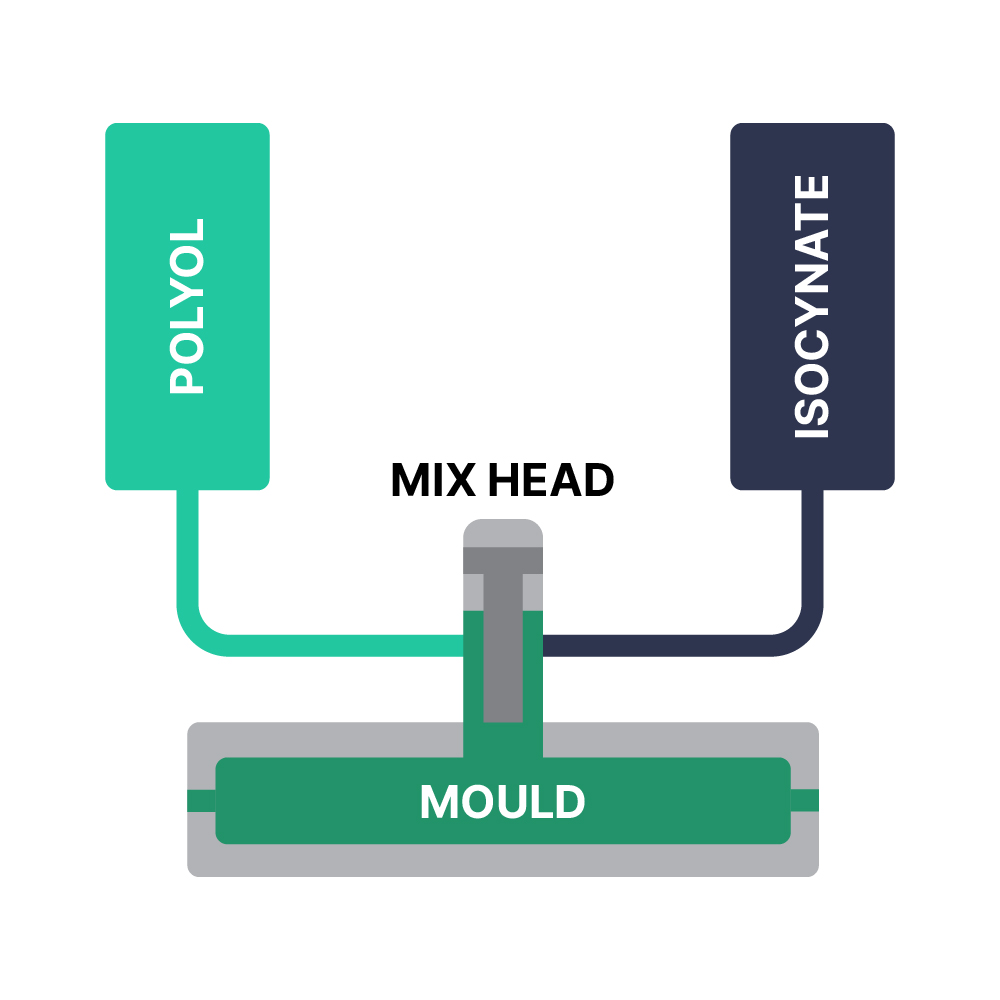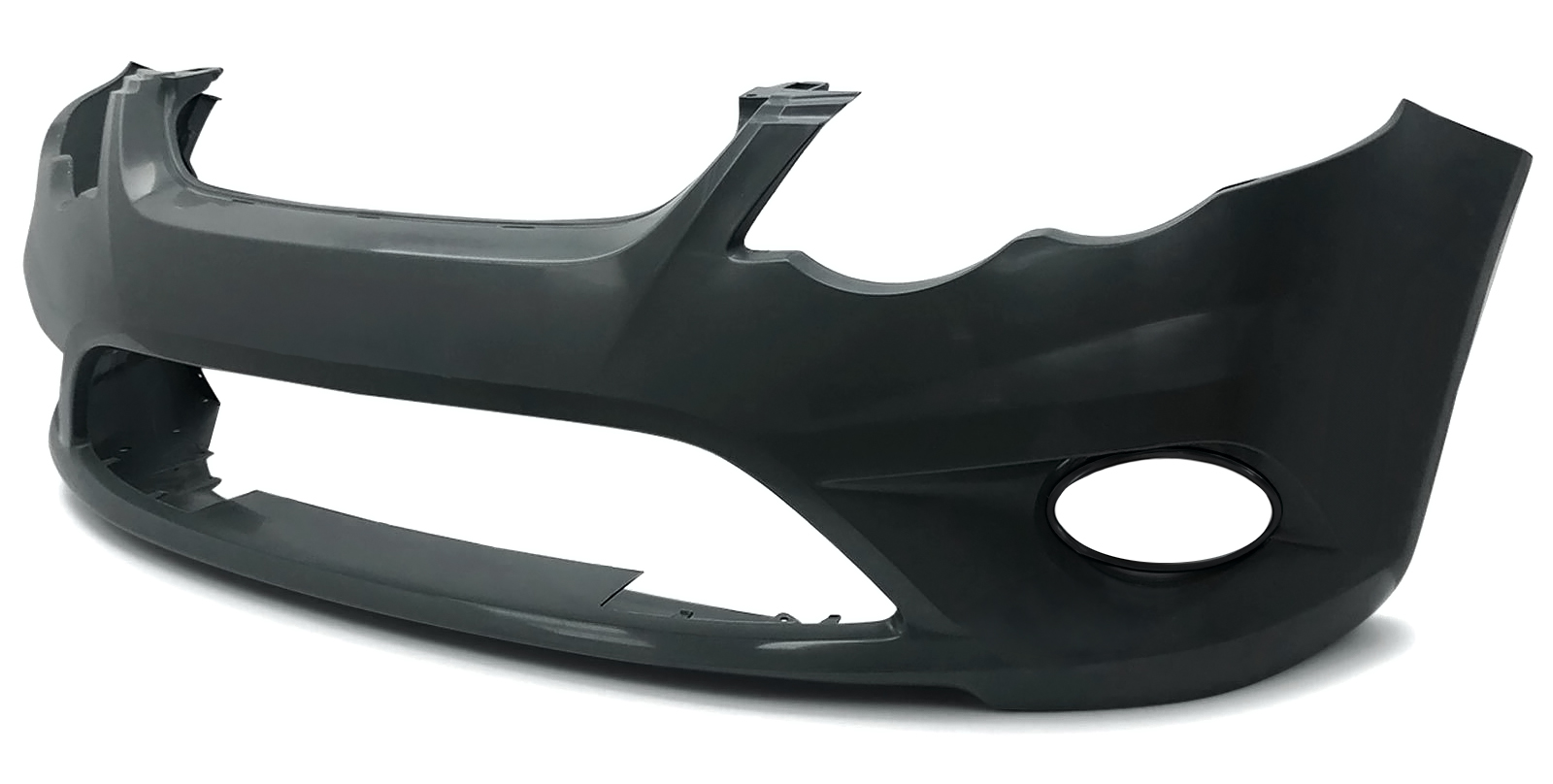Reaction Injection Moulding
What is Reaction Injection Moulding
Reaction Injection Moulding (RIM) is similar to traditional Injection Moulding except instead of using thermoplastic, thermosetting polymers are used. After the two low-viscosity liquid polymers are injected into the mould, a curing reaction occurs.
RIM is an ideal manufacturing technique when producing large, geometrically-complex parts that may require painting. This technology is suited for production runs between 100-10,000. RIM is ideal for automotive bumpers, spoilers, and other large-scale parts that should be rigid but lightweight at the same time.
Despite its slower cycle times and the investment in more expensive raw materials, the advantages of RIM are viable when producing large and geometrically-complex parts.
Advantages of RIM
- Large Parts: The liquid polyurethane’s unique properties enable the filling of moulds for exceptionally large parts.
- Overmoulding (encapsulation or insert moulding): allows one material to be moulded over another material.
- Thick and Thin Walls: Unparalleled design flexibility with significant variations in wall thickness.
- Paintable Surfaces: The surface finish of RIM-moulded parts allows for the production of painted components with a high quality finish.
- Low-Cost Tooling Options: RIM’s low injection pressures facilitate the rapid and cost-effective manufacturing of tooling, surpassing traditional injection moulding.
Frequently Asked Questions (FAQ)
Reaction Injection Moulding (RIM) is a manufacturing process that involves the injection of liquid reactants into a mould, where they chemically react and solidify to form a desired polymer product. Unlike traditional injection moulding, RIM typically uses low-viscosity liquid components, such as polyols and isocyanates, which react to create a durable and often lightweight finished product.
Reaction Injection Moulding (RIM) offers several advantages, including the ability to produce large, complex parts with high strength-to-weight ratios. It allows for the incorporation of intricate details, provides a smooth surface finish, and is cost-effective for low to medium production volumes. RIM is also suitable for producing parts with varying wall thicknesses and can accommodate a wide range of materials, including polyurethane and reinforced composites.
Reaction Injection Moulding (RIM) is commonly used to manufacture a variety of products across different industries. Examples include automotive body panels, spoilers, furniture components, and various structural parts. Its versatility makes it suitable for producing both aesthetic and functional components that require a combination of strength, durability, and intricate designs.
Unlike traditional injection moulding, which uses high-pressure injection of molten plastic, Reaction Injection Moulding (RIM) involves the low-pressure injection of liquid reactants that chemically react and solidify within the mould. This process allows for the production of larger and more complex parts with lower tooling costs. RIM is particularly advantageous for applications where the benefits of structural integrity, design flexibility, and cost-effectiveness are essential.
RIM is commonly associated with polyurethane materials due to their excellent combination of strength, flexibility, and impact resistance. These materials can be tailored to meet specific application requirements, including different hardness levels and physical properties. Additionally, RIM can accommodate reinforced composites, enabling the production of components with enhanced mechanical properties.
Ready to speak with us?
If you have questions please feel free to contact us.

